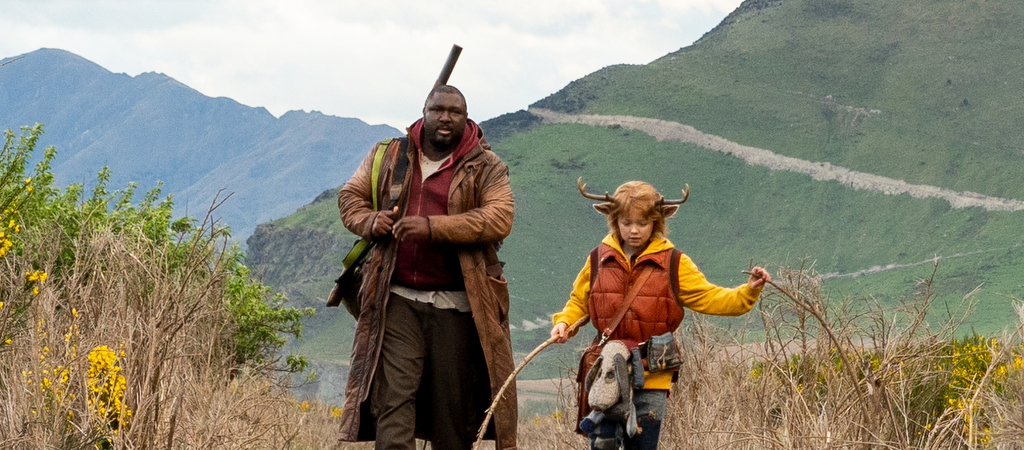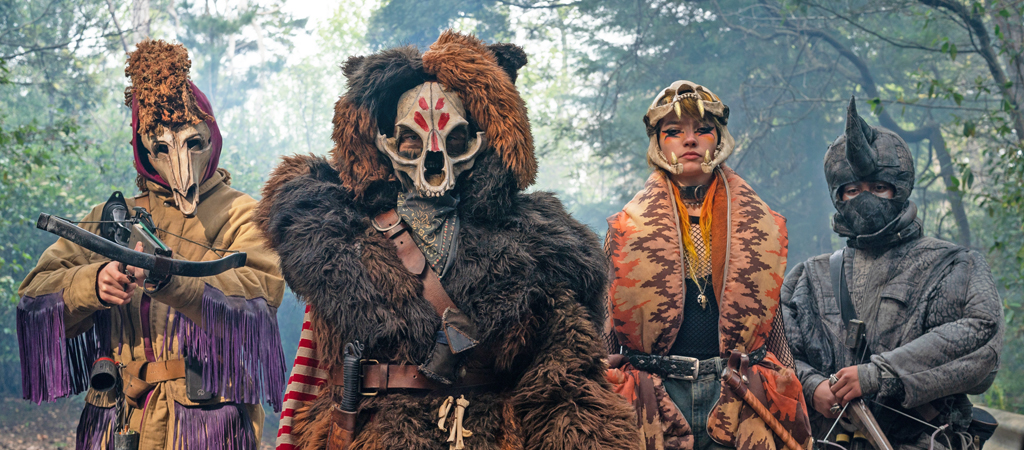
Sweet Tooth makes me feel giddy. I never expected to say that about a post-apocalyptic tale, especially one that uses a virus as a framing device, but here we are. Likewise, Robert Downey Jr. is here. He’s executive producing alongside Susan Downey and Warner Bros., relatively fresh off his Marvel Studios run as Iron Man while taking a stab at a DC Comics/Warner Bros. project; and following a production halt last year due to you-know-what, we’ve got an exciting comic book adaptation that (miraculously) does not involve superpowered beings. This show achieves another sizable feat, too, considering that post-apocalyptic fare has been a tricky thing to introduce during our current times. We’ve seen that already from a misfired Utopia on Amazon, and another uphill battle arrived with the reboot of Stephen King’s The Stand, which was quite good but, still, not exactly what people wanted to watch during a pandemic.
What I’m saying, quite inarticulately, is this: in order for a tale involving a humanity-halting virus to succeed, a finely-threaded needle must weave a story that can justify its existence outside of a virus-framing. Also, goddamn it, we need hope and positivity amid the shadows. With Sweet Tooth, that happens because the microbe didn’t need to be the spark of this dystopian fairy tale. Nor is the virus anywhere near a subject that overrides the show’s vibe. In fact, I nearly hesitated to mention any pathogen at all at the risk of giving anyone a reason to not watch this show because it’s a marvelously rendered tale. Yes, the show has dark moments — it is, after all, based upon a comic that’s been referred to as “Mad Max Meets Bambi” — but it’s also funny and smart and has a touch of satire. Most of all, Sweet Tooth is a series that involves mature themes but is a safe bet for the family, at least for those who can handle PG themes.
Here’s where I also urge you to not let that “family” attribute scare you away if you want a grown-up story. Sweet Tooth first surfaced (as written by Jeff Lemire) under DC’s Vertigo imprint, and comic-book fans damn well know that Vertigo (before these titles were moved under the DC Black Label umbrella) catered to mature audiences. Think The Sandman, Preacher, Transmetropolitan, 100 Bullets, and John Constantine: Hellblazer. As a comic book, Sweet Tooth was actually pretty bleak, but Team Downey and Warner Bros. sought to lighten the mood for the Netflix audience. Thank goodness for this foresight because, again, we need some uplifting material for genre fans who still wish to dance next to their darker proclivities.

With that said, there are a ton of aspects to love about Sweet Tooth. At its core, it’s a story that’s indeed got both Mad Max and Bambi vibes (a hybrid deer-boy suffers a great tragedy after the collapse of society), but the series also feels like The Mandalorian in spirit and the central dynamic (a Protector type and an adorably-eared Child, who gets, uh, hungry sometimes) that forms the soul of the show. There’s some The Walking Dead and The Road flavor up in there, too, along with Pinocchio and Peter Pan. All of those layers come to life through the performances of a wonder-filled Gus/”Sweet Tooth” (Christian Convery) and the gruff Jeppard/”Big Man” (Nonso Anozie) after they come together as strangers. For a decade, Gus has led a sheltered life in Yellowstone Park; it’s now road-trip time after his father figure, portrayed by Will Forte (who’s in serious mode, and it works), hid him away from all close-minded adults, who fear that hybrids unleashed the virus. And if this is sounding too familiar, those aspects of the show that could hit too close to home are skillfully diffused through a satiric lens.
As it turns out, Gus is a bit of a time capsule to those last moments before civilization turned to sh*t. He exists to remind people that there was once plenty of good in the world. He softens Jeppard (their chemistry between Convery and Anozie is outstanding, despite them never having met before their first take), and Gus similarly influences the perspective of a jaded teenage girl, Bear (Stefania LaVie Owen), who leads a group of animal-fur-clad youths that will remind people of The Lost Boys (in the Peter Pan sense, not the vampire flick of the late 1980s) or even Lord of the Flies.

Throughout their journey, Gus and Jeppard must evade a paramilitary group, The Last Men, who want to destroy hybrids, and yeah, it sure looks like fear is the real killer in this dystopia. Fortunately, James Brolin’s baritone narrator reminds us that this is, ultimately, a happy-ish story, and it also feels like a trip to the movies because it was shot in New Zealand, which stands in for Yellowstone and Colorado and looks gorgeous. There’s no need for much CGI here, as the show favors practical effects, and the story’s appeal rests upon its characters. Yes, the focal point of Sweet Tooth is the relationship between Gus and Jeppard, but there’s plenty of background players (from seemingly unconnected perspectives) to add texture and context to what else happens in the world beyond the quest. For example, we see a doctor wrestle with how to save mankind, and a therapist takes up residence at a zoo, where fantastical things happen.
Fearsome presences rear their heads, as well. The Last Men function as the story’s outright big bad, and they’re led by a general (portrayed by a, dare I say, unrecognizable Neil Sandilands). Meanwhile, other hybrids enter the story, the past collides with the present in all sorts of ways. Oh, and the vibes are pleasantly overwhelming. Sweet Tooth isn’t quite arriving in summer, but it’s giving us summer moods: hope and positivity and love and understanding and the healing of nature. It’s the show that the stuck-at-home-too-long audience needs right now, and it’s a big, comic-book-loving blanket of a series. The eight episodes of this first season go heavy into world-building that should lead into future seasons, if the Netflix audience knows what’s good for them.
Netflix’s ‘Sweet Tooth’ streams on June 4.
